How unconscious bias can affect employee engagement and retention
While most of us have heard the term ‘unconscious bias’, it’s easy to dismiss it as something that affects others and not us.
The reality is that unconscious bias affects everyone to some degree. Described as a ‘hidden flaw’, evidence suggests that, regardless of our role or position at work, everyone can think in a way that involves hidden prejudices at some point – without realising it.
For business leaders, recognising and addressing our unconscious bias is crucial, so that it doesn’t influence our behaviour and decisions at work.
Left unchecked, unconscious bias stops you from developing an inclusive and open-minded company culture; it compromises integrity, inhibits a diverse workforce and hinders career progression.
Before we delve any further, let’s take a look at the definition of unconscious bias and the different forms it can take.
What is Unconscious Bias
According to Imperial College London, unconscious (or implicit) bias is “a term that describes the associations we hold, outside our conscious awareness and control”. It also says that it is ”…triggered by our brain automatically making quick judgments and assessments”. These associations can be influenced by a whole range of factors, including personal experiences, our own background and cultural contexts.
Contrary to popular belief, it is not exclusively reserved for gender or ethnicity, for example. Height, names, even our choice of sport, can automatically trigger mental shortcuts that our brains use to unleash unconscious bias.
What are the types of unconscious bias?
Hidden prejudices can manifest themselves in different ways and in different workplace scenarios, including:
- Affinity Bias: Our unconscious human tendency to stay in our comfort zone and lean towards other people with similar backgrounds, interests and beliefs as us.
- Confirmation Bias: When we actively seek out evidence about a candidate that confirms why we like them; or, if we don’t like an applicant, selectively look for the reasons that prove we’re right.
- Cultural Bias: When we judge a person or a group by the standards fundamental to our own culture.
- Gender Bias: Prejudicing an individual based on their gender and perpetuating stereotypes, i.e., calling a woman ‘bossy’ for showing ambition while describing a man as ‘focused’.
Why does it matter?
Put simply, unconscious bias can impact our perception of, and interaction with, others. Not only is this harmful for your ED&I efforts, but it can have a detrimental impact on your overall business success. It can influence key business decisions and create inequality in areas such as recruitment, performance management and career progression.
So, as business leaders, what happens when we let our unconscious biases come to the surface:
Our hiring practices are biased
Recruitment is the pipeline for new types of people into your business. However, if we only hire people we like, or we believe are the right ‘fit’, then our organisation becomes homogeneous and we miss out on a broader, more diverse talent pool. Also, if your adverts or job descriptions use gendered language, or if you’re advertising on social media only, you may be excluding certain groups.
Our judgement is clouded during performance management
Unconscious bias could impact how managers approach performance reviews and feedback in their teams; for example, they could unfairly inflate, or deflate, ratings during appraisal season, and impact pay rise or disciplinary actions. If someone feels overlooked, and you’re not giving the people a chance when they deserve it, then you might have a flight risk – or an employment tribunal claim.
We promote the wrong people
Our promotion decisions become misguided if we fail to give someone an opportunity because we ascribe certain characteristics to them that they don’t necessarily have, rather than base our decision on merit. This also means we can favour someone unfairly because we think they have positive characteristics, again that they don’t necessarily hold.
We repel top talent
Attracting top talent into your organisation will drive creativity and innovation, bring in a ton of new ideas and enhance your brand image – and you are building your future leaders. But, if you don’t offer, in return, a business with a diverse and inclusive workforce that’s bursting with a broad range of perspectives, backgrounds and experiences, then you’ll push that talent away in droves.
Our engagement plummets
Unconscious bias is a contributing factor to a spike in turnover and a drop in retention rates. If people don’t feel they’re being treated fairly, that their contributions are not being valued, and they feel excluded and isolated, it will lower their engagement. Disengagement could soon lead to their departure.
Unconscious bias can’t be erased overnight and it’s an ongoing, continual process of elimination. However, not only facing up to but actively moving past our unconscious biases and building an awareness of our thinking patterns can make us better leaders.
HR leaders and business owners bear a responsibility to make a difference through their behaviours and attitudes, by fostering a culture where people feel included, are treated fairly and are valued for who they are.
For more information or HR support in your workplace please get in touch.









